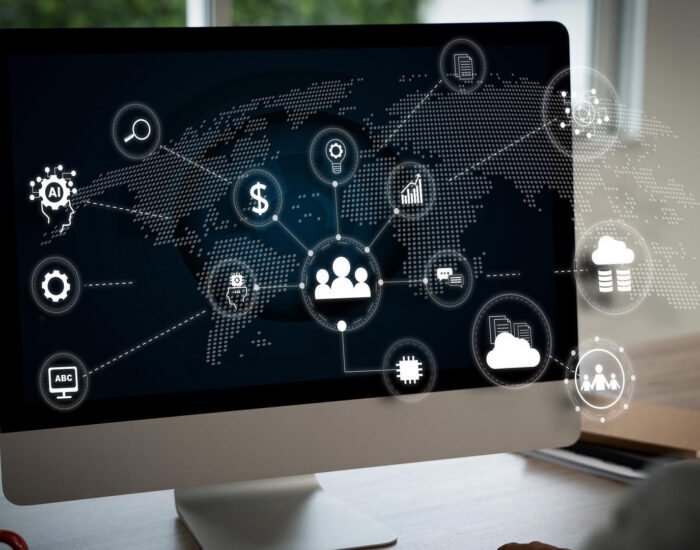Explore how personalization and automation are transforming B2B marketing in Asia. Discover key trends driving growth and engagement across the region.
The evolution of B2B marketing in Asia has been dramatic over the past few years. The current business evolution toward digital transformation enables two primary trends that shape powerful marketing strategies based on personalization and automation. These trends, driven by technological developments together with changing customer expectations, have transformed how B2B companies approach prospect interactions and relationship development and market expansion throughout the diverse Asian regions.
Table of Contents:
1. The Digital Acceleration of B2B Marketing in Asia
2. Why Personalization Matters More Than Ever
2.1. Rising Customer Expectations
2.2. Data Availability
2.3. Localization Needs
3. Automation: Scaling Marketing Efficiency
4. The Synergy Between Personalization and Automation
5. Regional Trends and Insights
5.1. India: Automation at Scale
5.2. China: Data-Driven
5.3. Japan: Precision and Trust
5.4. Southeast Asia: Mobile-First Marketing
5.5. South Korea: Tech-Savvy and AI-Driven
5.6. Singapore: Hub for Martech Innovation
Wrapping Up!
1. The Digital Acceleration of B2B Marketing in Asia
Asia experienced a tremendous advance in digital technology because of the pandemic. McKinsey reports that Asian customer interactions moved forward three to four years through digital transformation within a brief period of 2020. B2B marketing teams gained the opportunity to utilize technology for precise targeting activities and meaningful engagements because of this acceleration. Businesses adopted virtual communication and content marketing alongside webinars and social selling, which triggered the importance of automation tools and personalized strategies for better return on investment and converting leads. Digital transformation became an imperative for all businesses that need to compete effectively in today’s adaptable B2B market that depends on immediate hyperconnectivity between companies.
2. Why Personalization Matters More Than Ever
The extensive cultural and linguistic diversity throughout Asia makes personalization an absolute requirement for business success. Businesses operating across countries like India, China, Japan, Singapore, and Indonesia face varied buyer behaviors, preferences, and decision-making processes. The use of standard solutions has become completely inadequate. Key drivers of B2B personalization in Asia:
2.1. Rising Customer Expectations
Organizational buyers expect customized servicing experiences identical to those they get as consumer clients. The essential elements of successful differentiation include personalized content together with pertinent recommendations tied to situational messages.
2.2. Data Availability
Marketers now obtain hyper-personalization capabilities through enhanced Customer Data Platforms (CDPs) and CRM systems, which provide detailed behavioral as well as firmographic and transactional data.
2.3. Localization Needs
Asia-based personalization requires localization through the modification of linguistic elements and cultural elements in addition to language adaptation. A marketing message effective in Singapore needs completely new strategies to succeed in Japanese and Vietnamese markets.
3. Automation: Scaling Marketing Efficiency
Fast-paced B2B operations in Asia require the two critical success factors of personalization for relevance and automation-driven efficiency and scalability. Marketing automation tools provide companies with the capability to automate repeated operations while delivering sequence-based lead development combined with targeted messaging throughout email, social media, and chat communications. The Asian market adopts email drip campaigns that deliver personalized content through buyer stage advancement, as well as AI-powered chatbots for mobile-focused support and automated lead priority systems that base scores on user behavior.
Thanks to HubSpot, Marketo, and Zoho platforms, many organizations choose these platforms because they enable complex task simplification and automation management. B2B marketing professionals in the region leverage automation to handle their manual tasks and achieve real-time engagements and lead management improvement, together with better return on investment and flexible multichannel and multi-language capabilities. The increasing need for speed and scale requires organizations to implement automation as their fundamental tool for achieving highly effective marketing efforts that preserve high-quality standards.
4. The Synergy Between Personalization and Automation
Integrating personalization with automated functions produces a substantial force that leads B2B marketing to become more intelligent. Market automation creates the ability for marketers to tailor campaigns during mass deployments, which leads to relevant messages without reducing operational speed. Singapore-based SaaS providers can use user behavior tracking to initiate automated emails tailored to specific industries that offer demo services. The manufacturing firm in India employs automation tools to deliver personalized white papers that address the specific requirements of their event participants according to their job positions and business sizes. Customer engagement achieves higher conversion rates, and more targeted relationships develop because of this combined approach.
5. Regional Trends and Insights
Each Asian market presents unique challenges and opportunities when it comes to personalization and automation.
5.1. India: Automation at Scale
The B2B market in India shows strong interest in marketing automation to process large lead volumes effectively and enhance their targeting capabilities. Market automation tools such as WhatsApp automation, along with CRMs and email workflows, help execution teams maximize their outreach capabilities in both SMBs and enterprises. The implementation of marketing automation at scale remains limited by two main obstacles: poor customer data quality and connectivity problems with outdated systems in place.
5.2. China: Data-Driven
Personalization The distinctive Chinese digital system operating through WeChat and Baidu forces marketers to develop data-driven B2B methods that specifically adapt to local market preferences. AI-powered segmentation within social CRMs allows companies to deliver highly customized marketing initiatives according to Chinese business traditions. Platform fragmentation, together with strict data privacy laws, makes it difficult for automation systems to become integrated with larger marketing ecosystems, which would enable personalization consistency across all channels.
5.3. Japan: Precision and Trust
The Japanese B2B marketing environment centers around building trust between companies while focusing on delivering high-quality relationships that extend across prolonged periods. Companies use deep insights to create customized content that fulfills cultural expectations in personalization strategies. The tactic of selective automation adoption exists to assist human operations instead of taking over their responsibilities. B2B marketing success in Japan depends on thought leadership content, account-specific webinars, and precise segmentation techniques.
5.4. Southeast Asia: Mobile-First Marketing
Businesses in Indonesia, Vietnam, and the Philippines have started adopting mobile-first B2B tactics since their populations embrace smartphones. Marketers utilize mobile CRMs together with chatbots and localized messaging apps to automate their operations of lead generation and customer engagement. Rapid growth in Southeast Asia, together with its multiple languages, presents obstacles for maintaining uniform personalization and automation through standard frameworks across the entire region.
5.5. South Korea: Tech-Savvy and AI-Driven
South Korean B2B marketers demonstrate strong embracing behavior toward AI and automation through their implementation within CRM systems and chatbots, as well as predictive analytics capabilities. Digital maturity of the audience drives B2B marketers to focus on immediate personalization and automated content recommendation systems. South Korean markets need continuous technological advancements along with strong localized strategies to succeed under prevailing data privacy regulations and technology innovation standards.
5.6. Singapore: Hub for Martech Innovation
Singapore stands as a leading technology and business center through which Asia’s B2B martech market follows its lead. Modern companies are using automation to create multichannel marketing initiatives along with account-based marketing and artificial intelligence for personalization purposes. Global customer bases allow personalization efforts to extend across different regions because of strong backend data systems. Businesses face two key obstacles when they aim to merge high-tech innovation with market privacy rules and deliver targeted content throughout multiple regions.
Wrapping Up!
The digital expansion of Asia will lead B2B marketing practices throughout the region toward greater intelligence, human-based approaches, and automatic response strategies. Personalization alongside automation moved from desired features to basic requirements in business strategy. Achieving the right equilibrium between automation controls and personalized authenticity stands as the essential principle. Business success in Asia’s dynamic B2B market goes to those marketers capable of leveraging data while employing advanced technology, while maintaining regional sensitivity.
Visit Our SalesMarkBlog Section to Uncover the Sales Strategies That Ignite Your Sales Journey!





